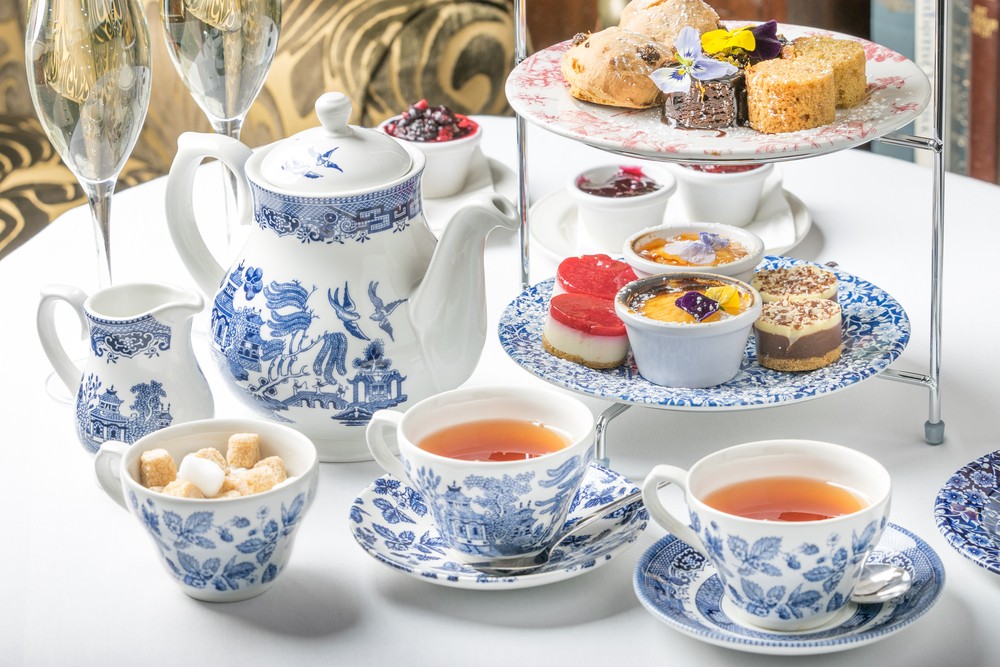Why you should let your tea cool off before sipping it
A burning hot cup of tea on a daily basis might be harmful for health.
Change text size
Gift Premium Articles
to Anyone
 The traditional British method of enjoying tea involves adding cold milk to the beverage, making the temperature safer for health. (Shutterstock/Petereleven)
The traditional British method of enjoying tea involves adding cold milk to the beverage, making the temperature safer for health. (Shutterstock/Petereleven)
T
here are some ways to drink boiling hot tea and get away with it. Sip slowly, and the beverage warms us up. The tea will gradually cool down as you sip your way to the middle of the cup. That is a very satisfying experience for some, especially when it’s raining or snowing outside.
Boiling hot tea, however, has recently been linked to esophageal cancer. A new study that appeared in the Annals of Internal Medicine pointed out that very hot tea can harm the cells in the esophagus.
“If the person also drinks alcohol and smokes, the harm will be heightened,” said Jun Lv, a professor in the Department of Epidemiology and Biostatistics at Peking University and the lead author on the study as quoted by The Telegraph.
Read also: Tea lovers rejoice new research shows black tea also has health benefits
Esophageal cancer, the eighth most common cancer in the world, usually results from repeated injury to the esophagus, often by smoke, alcohol, acid reflux and hot liquids. But drinking hot tea, at temperatures above 65 degrees Celsius, only contributes to cancer when it is accompanied by smoking and drinking alcohol excessively, according to Lv. The study also said excessive alcohol consumption is defined as 20 ml or more of alcohol per day, about the amount found in a 350 ml glass of beer or a 45 ml shot of distilled spirits. Tobacco use was defined as smoking one or more cigarettes per day.
Neal Freedman, senior investigator at the National Cancer Institute in Bethesda, Maryland, said very hot drinks could make the esophagus more vulnerable to known cancer-causing agents such as alcohol and smoke. Fortunately, if you drink your tea the traditional British way with additional cold milk, the temperature drops to a safer level, unlike in Russia or the Middle East where very hot tea is commonly enjoyed out of a samovar that’s constantly under heat.
Although tea is best enjoyed at 65 degrees Celsius, the tea leaves are ideally brewed at higher temperatures. According to Ratna Somantri, a renowned tea expert, black tea and tisane (herbal, flowers, fruit tea) are best brewed at a maximum temperature of 98 degrees Celsius. White tea and green tea have ideal brewing temperature of 70-80 degrees Celsius, and Oolong is 80-90 degrees Celsius. Higher than that, green tea will become bitter, white tea can lose its sweet note but the aroma can increase. Otherwise, if the water used for brewing tea is cooler than the ideal temperature, the aroma and flavor of tea will not come out to its best.
Read also: Nine must know trends for tea enthusiasts
Moreover, Trixie Anindita from TWG Tea Indonesia added that tea in general is best brewed at a temperature just below boiling point, about 95 degrees Celsius. While special Japanese green tea and Chinese white tea needs lower temperature, as low as 75-80 degrees Celcius. Tea leaves require oxygen to bring out their aroma, and there is no more oxygen when water reaches boiling point.
At the end of the day, make use of hot water to brew your tea, but let it cool before your first sip. Tea, on the other hand, has many health benefits to your advantage. According to a 2009 study in the journal Nature Reviews Cancer, components of tea leaves are reported to have antioxidant properties and may protect against other types of cancers, particularly colon and prostate cancer.
“Green tea has shown to be a little more effective in cancer inhibition versus black tea, but black tea is more effective in cardiovascular health,” said Peter Goggi, president of the Tea Association of the United States. (mut/kes)









